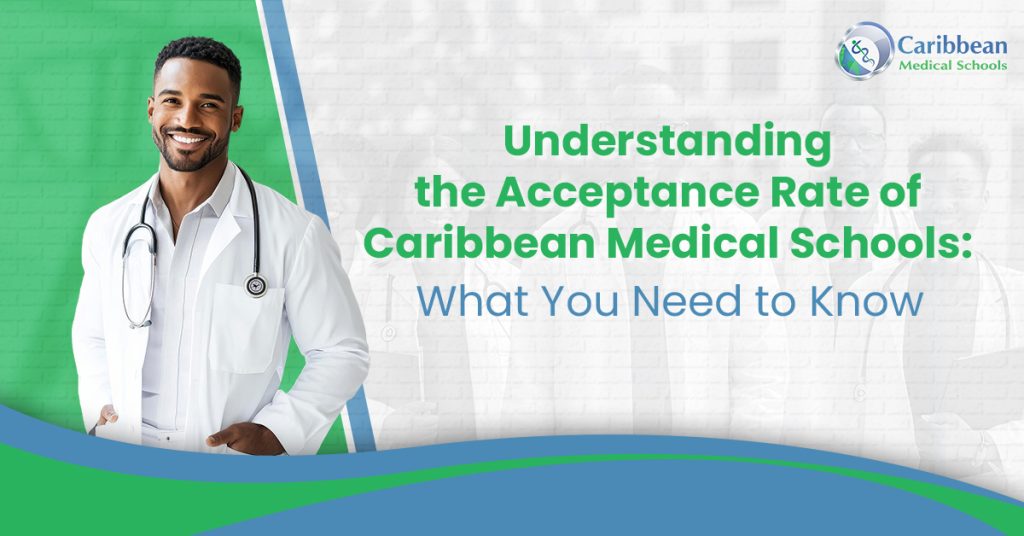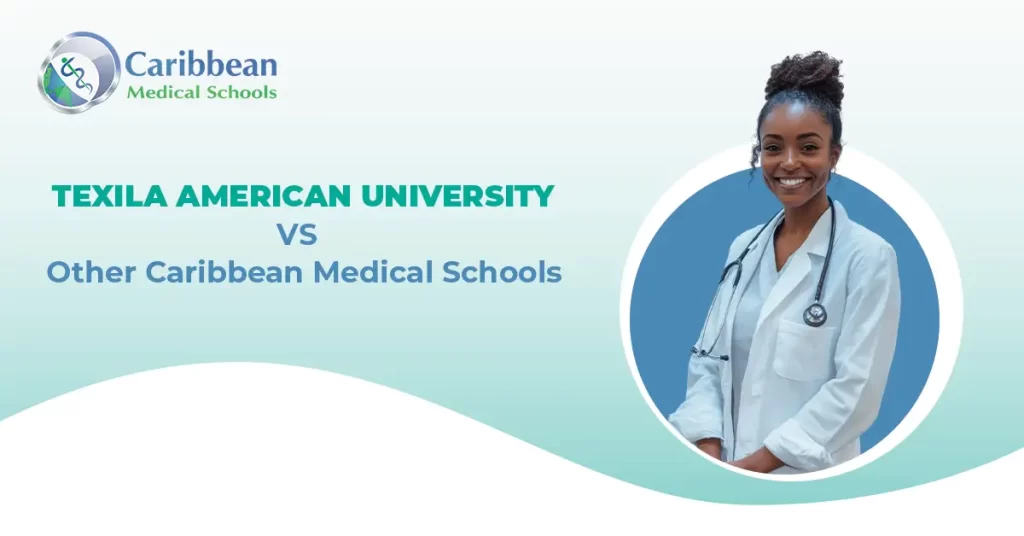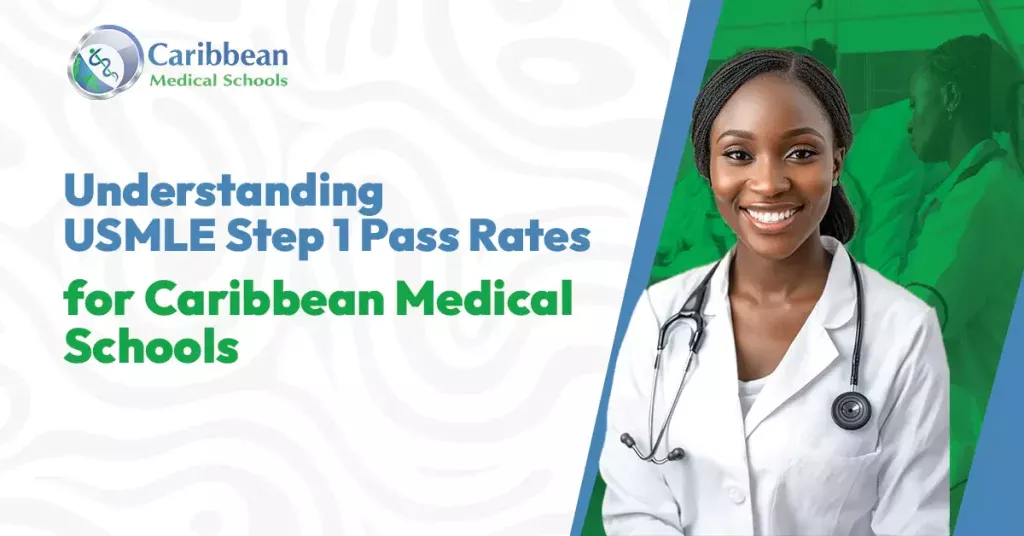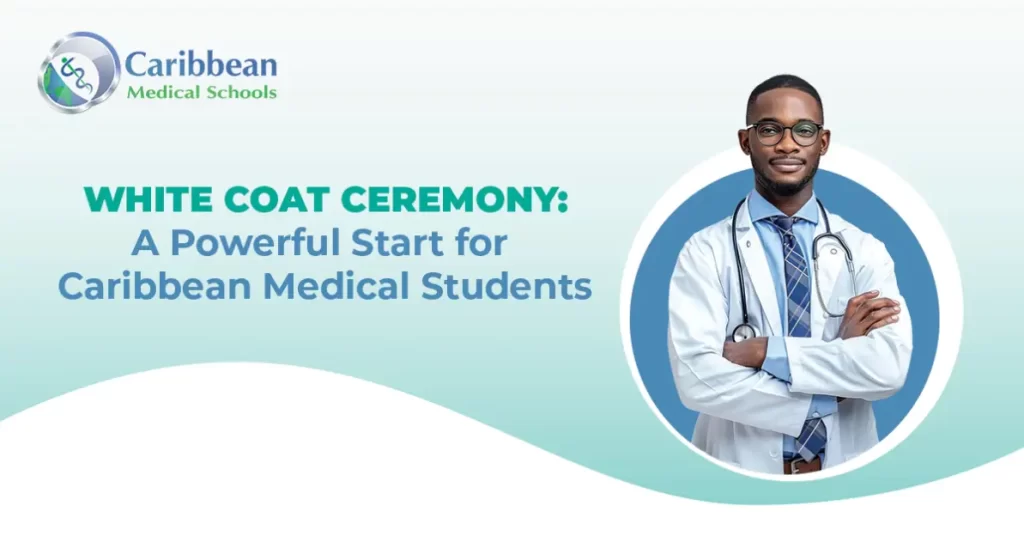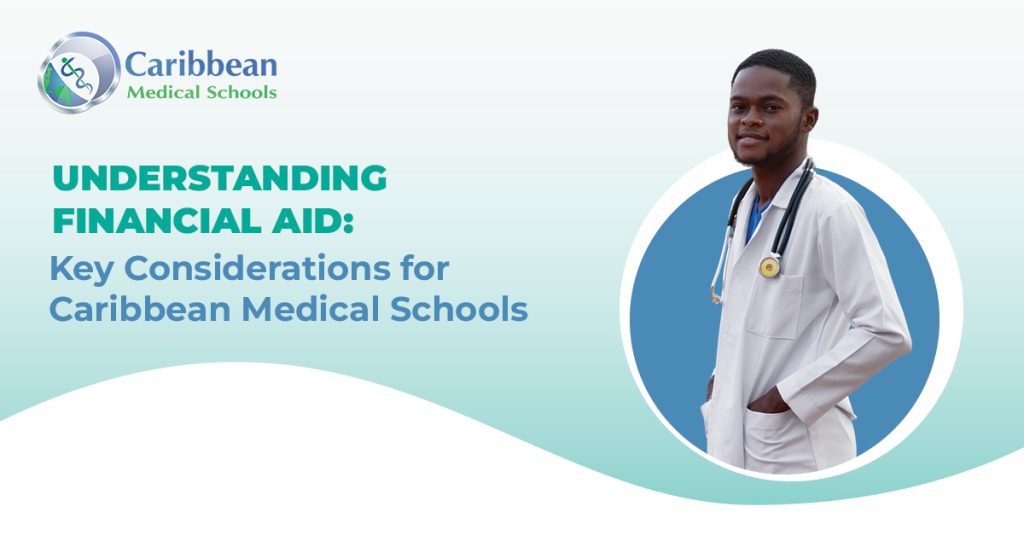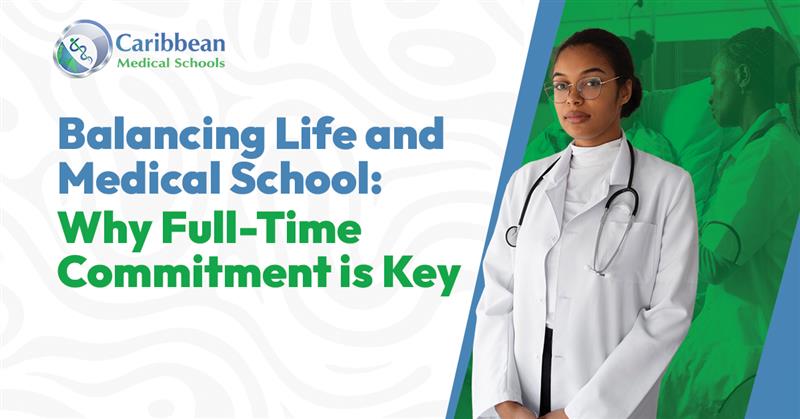Blog Summary
When it comes to becoming a doctor, securing a spot in a medical school can be highly competitive, particularly in the United States. For students who might be looking for alternative options or who wish to study in a unique environment, schools in the Caribbean have become an increasingly popular choice. Understanding the Caribbean medical school acceptance rate is key for students aiming to increase their chances of admission, and this blog will dive into the essentials of acceptance rates, factors influencing admissions, and tips to enhance your chances.
Table of Contents
Why Choose a Caribbean Medical School?
Schools in the Caribbean offer students a unique blend of high-quality medical education and tropical settings. With lower entry barriers than U.S. medical schools, Caribbean institutions present a compelling opportunity for students who are passionate about medicine but may not have been accepted into a U.S. program. These schools offer programs accredited by organizations acknowledged by the U.S. Department of Education, allowing students to practice in the U.S. after passing the necessary licensing exams.
However, understanding the Caribbean medical school acceptance rate can help set realistic expectations about competitiveness and identify the right school based on your credentials and aspirations.
What is the Acceptance Rate of Caribbean Medical Schools?
The acceptance rate varies widely among schools in the Caribbean, with some having a more selective process than others. On average, Caribbean medical school acceptance rates can range from about 20% to over 50%. This range reflects differences in the standards and requirements of each institution, making it essential to research specific schools to determine where you might stand in terms of eligibility and competitiveness.
The Caribbean medical schools with the most competitive acceptance rates tend to be those with strong reputations and rigorous academic standards. These institutions typically have acceptance rates around 20%, making them more selective than many others, yet still more accessible compared to many U.S. medical schools. While the application process remains competitive, these schools provide an opportunity for aspiring medical students seeking an alternative to domestic programs. For more detailed information, prospective students should research specific schools and their entry requirements.
Factors Influencing Caribbean Medical School Acceptance Rates
Acceptance rates are shaped by several factors that each school considers during the admission process. These include:
1. GPA and Academic Record
Most Caribbean schools require a minimum GPA for admission, though this requirement is often more flexible than that of U.S. schools. Typically, a GPA of approximately 3.0 or above is viewed as competitive, although some schools may admit students with lower GPAs if they possess other strong qualifications.
2. MCAT Scores
While some Caribbean schools do not require the MCAT, the Caribbean medical school acceptance rate tends to be more favorable for students with strong MCAT scores. A score of 490 or above is generally a good benchmark for competitive applicants. However, each school’s policies vary, and some may weigh other factors more heavily.
3. Letters of Recommendation and Personal Statements
Quality letters of recommendation from professors, doctors, or professionals who can speak to your commitment and capability in medicine can strengthen your application. A well-crafted personal statement also makes a significant difference, as it’s an opportunity to share your passion for medicine and your reasons for choosing a Caribbean school.
4. Clinical and Volunteer Experience
Most schools, including those in the Caribbean, appreciate applicants with clinical experience, which shows a real-world commitment to the medical field. Shadowing doctors, volunteering in hospitals, or participating in health-related programs are all beneficial experiences that can positively influence acceptance rates.
5. Interview Performance
For some schools, interviews are a vital part of the selection process. This gives the admissions committee a chance to assess your communication skills, motivation, and fit for their program. Proper preparation can improve your chances, as a strong interview performance can help make up for lower GPAs or test scores in some cases.
How Caribbean Medical School Acceptance Rates Compare to U.S. Schools
Caribbean schools generally have higher acceptance rates than U.S. schools, which means more students who are passionate about medicine have a chance to pursue their dreams. In the U.S., medical school acceptance rates are often below 10% due to intense competition, with schools prioritizing students with near-perfect GPAs and MCAT scores.
In contrast, Caribbean schools offer a more inclusive approach, providing opportunities for students who might not meet the extremely high standards of U.S. programs but are nonetheless determined and capable of succeeding in medicine.
According to the Association of American Medical Colleges (AAMC), the average acceptance rate for U.S. medical schools is around 7%, while Caribbean medical schools range from 20% to 50%.
Improving Your Chances of Acceptance in a Caribbean Medical School
If you’re considering applying to a Caribbean school, there are several strategies that can help increase your chances:
1. Focus on Academics and MCAT Preparation
Strengthening your academic record, even after graduation, can be beneficial. Consider post-baccalaureate programs or additional coursework in relevant science fields. In the same way, putting effort into MCAT preparation can enhance your application, especially for schools that emphasize test scores.
2. Craft a Standout Personal Statement
In a field as competitive as medicine, a powerful personal statement can set you apart. Discuss your motivations, experience, and goals in medicine. Be authentic and reflective about why you chose a Caribbean school and how this aligns with your long-term aspirations.
3. Gain Clinical Experience and Volunteer Work
Hands-on experience in healthcare settings not only strengthens your application but also provides a deeper understanding of the medical profession. This experience can reinforce your commitment to the field, making you a more attractive candidate.
4. Apply Early and to Multiple Schools
Applying early demonstrates your commitment and increases your chances of acceptance. Additionally, submitting applications to multiple Caribbean medical schools can expand your options and give you a better chance of receiving offers from programs that align with your goals.
5. Prepare for Interviews Thoroughly
If an interview is required, it’s crucial to practice and prepare extensively. Consider seeking out mock interviews or speaking with alumni of Caribbean schools who can provide insights into what to expect. Confidence and a clear articulation of your goals and experiences can make a lasting impression on the admissions committee.
Accreditation and Licensing Considerations
While the Caribbean medical school acceptance rate offers a more accessible path to medical education, it’s essential to choose an accredited program if you plan to practice in the U.S. Graduates from accredited Caribbean schools are eligible for U.S. licensing exams and residencies, provided they meet the necessary requirements.
Common Myths About Caribbean Medical Schools
Let’s clear up some common misconceptions about studying medicine in the Caribbean:
- Myth 1: Caribbean medical schools are only for those who failed in the U.S.
In reality, many students choose Caribbean schools because they offer an excellent education in a unique environment. These programs can provide the same qualifications and preparation for U.S. licensing exams as U.S. schools.
- Myth 2: Caribbean medical school graduates cannot practice in the U.S.
Many graduates from accredited Caribbean schools practice in the U.S. and have fulfilling careers in medicine. Residency placement rates vary by school, but the “Big Four” schools consistently see strong residency match rates.
- Myth 3: Caribbean medical schools have low academic standards.
Caribbean schools, particularly accredited institutions, maintain rigorous academic standards. Students must meet strict criteria and pass standardized exams, ensuring they are prepared for medical careers.
Conclusion: Making an Informed Decision
Choosing to pursue a medical education in the Caribbean is a significant decision, and understanding the Caribbean medical school acceptance rate is just one part of the equation. These schools provide a pathway to becoming a doctor for thousands of students each year, offering a diverse and accessible route to a career in medicine. By researching individual schools, strengthening your application, and understanding the admissions process, you can improve your chances of acceptance and set yourself on a path toward a rewarding medical career.
Whether you’re drawn by the beautiful landscapes, the inclusive admission standards, or the opportunity to gain clinical experience that prepares you for U.S. practice, a Caribbean medical education could be the right choice for you. Good luck with your journey, and remember, dedication and passion for medicine will help you succeed no matter where you begin.

